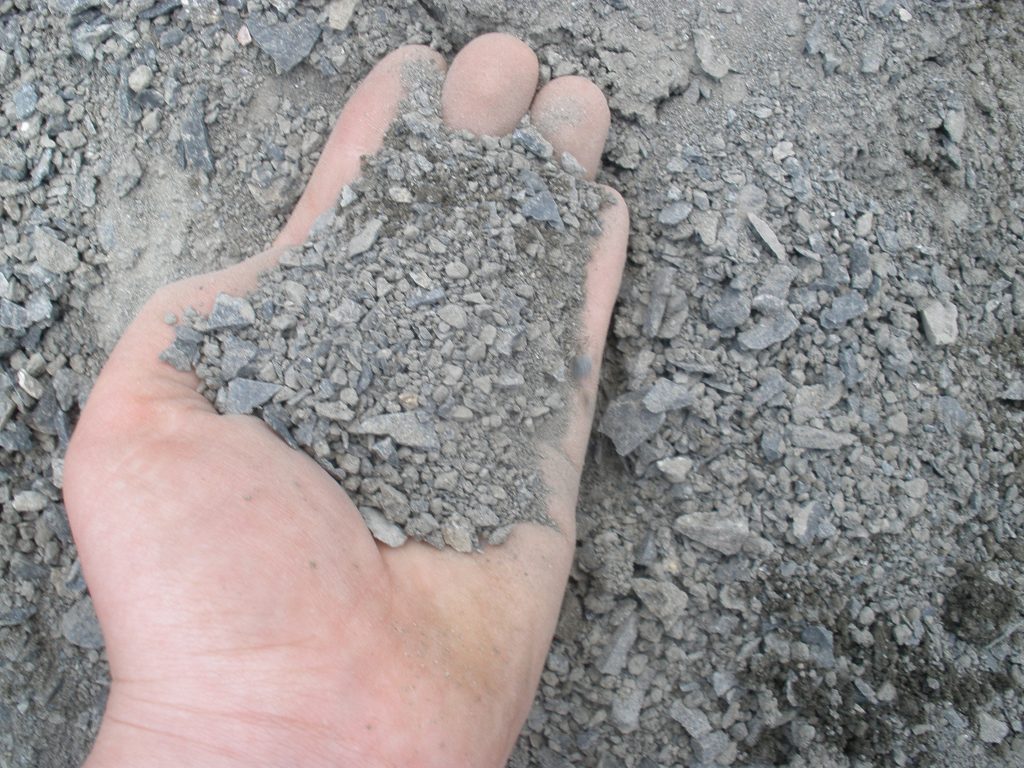Basalt, the source rock that produces the most fertile agricultural soils the world over.
Most people who grow their own food or eat organic food assume that the food they eat contains all the nutrients they need to be healthy. This assumption is encouraged by nutritionists, fertiliser companies and even by organic producers. Missing in this assumption are the minerals we require for optimum health and functioning of our bodies. A few basic truths need to be clarified:
The minerals our bodies need are NOT distributed evenly in the soils on which we grow food, even in the fertile volcanic soils dotted around the world.
Low availability of minerals in our diets can lead to serious health issues relating to heart, reproduction, lung, organ function, immunity and healing. This is well known to science and health authorities. Mineral supplementation and soil remineralisation is allowed and recommended for economic reasons and for pet animals, but is discouraged for the human population, where some minerals touted as being toxic when in fact they are critical to human health.
The limited number of food plants we depend on are mineral accumulators, not mineral factories.
If a mineral is not in the soil where a plant is grown then it cannot be in the plant, no matter how organic or fertile the soil.
The bulk of our food plants grow (in other words, have their roots) in the top 200 – 300 mm of the soil. Constant use of the soil, even organically, will deplete the minerals in that soil zone and affect the productivity of garden plants. Plant or crop rotation and fallow can only SLOW mineral depletion by plants but it cannot STOP the process.
Most of our food plants are mineral ‘hungry’, with their roots rapidly depleting available minerals in their growth zone. Among these are corn, tomatoes, potatoes and eggplants, the vine crops [cucurbits] and others.
Most of us have heard that Australian soils are ‘phosphorous deficient’. This is in fact not so. Here the phosphorous is, however, in a chemical state that cannot be used by plants, being locked up by other minerals such as aluminium [in clay/acid soils]. Other minerals (such as calcium) are often in a similar state. We are encouraged to add calcium, gypsum, lime/dolomite and/or phosphorus to the soil in other forms. These in turn can lock up other minerals in the soil creating other deficiencies as well as causing a depletion of the micro biome in the soil. Nitrogen is promoted for good plant growth, but it mainly promotes leaf growth, and manufactured forms of nitrogen often overload the soil leading to inappropriate growth rates and water-dependent root systems. Too much nitrogen also promotes the demise of both bacteria and beneficial fungal mycelium in the soil. Artificial fertilisers, herbicides and insecticides play a major role in depleting beneficial soil life.
A Rocky Solution
Basalt [blue] rock, always associated with volcanic action, has long been known as the source rock that produces the most fertile agricultural soils the world over. It is now quarried and crushed extensively to provide the preferred substrate for highway and road construction. A by-product of this process is crusher dust or rock dust, usually sold through landscape and garden supply businesses. Some Mitre 10 stores also carry it, but it is cheaper in bulk from garden supply business.

While exact mineral analysis varies from quarry to quarry, basalt crusher dust contains a wide range of minerals that are loved not only by plants and the natural soil biome [microbes/bacteria, earthworms, etc.], but also by our bodies when we consume our food plants. The fruits produced by plants grown with crusher dust are firmer, last longer and taste better. Plants are healthier and attract fewer insect pests. Healthy soils deter soil-borne pests. Pests that do occur can easily be dealt with by hand-picking, using neem products, or similar organic oils.
A beneficial function of crusher dust is the presence within it of an active form of Silica oxide; this is chemically able to deal with and balance both saline and acid soils. The silica is also taken up by plants and our bodies where it strengthens cell walls and bone structures, and assists various processes within the plant and human body, strengthening heart, lung, prostate, other internal organs and brain function.
How to Use It – By the Handful
The best way to use crusher dust in a home garden is by the ‘handful’. A handful spread over a half a square metre of garden bed can be dug in prior to planting. For root crops, sprinkle this into a furrow prior to planting. For green manure crops, broadcast by hand – a handful at a time – over the area required. Top dressing a lawn is similar. When planting fruit or other trees, dig the planting hole, drop a handful of rock dust into the hole then add at least half a bucket of water, backfill and plant. Add another handful on the soil at the top and water in. This lower rate of usage can be applied annually. Add it to your own compost or mix it with commercial organic composted products.
Warning
Crusher dust does not contain any form of nitrogen, nor will you ever see a ‘change in green’. However, the soil biome will set about using what it needs and passing this to root systems where it is incorporated as required. Minerals that are not needed remain inert until they are required.
Like all agricultural ingredients, more is definitely NOT better. As evidenced by eruptions of volcanoes, basalt dust can be toxic if too much is used. Stick to the recommendation above and, like everything, it is better, more cost-effective and more productive when used in moderation.
Research information on the subject can be found on Dr Google, or contact Philip on [email protected] for practical information.
[NB: For anyone wishing to reprint this article elsewhere, please first contact Philip Holzknecht directly.]
Footnote by Michael Balk – we have no problems here in Murwillumbah, but some building materials suppliers in the metropolitan areas sell recycled road base (crushed concrete from demolition sites). Just make sure you say it is for garden use and you want natural basalt crusher dust.
